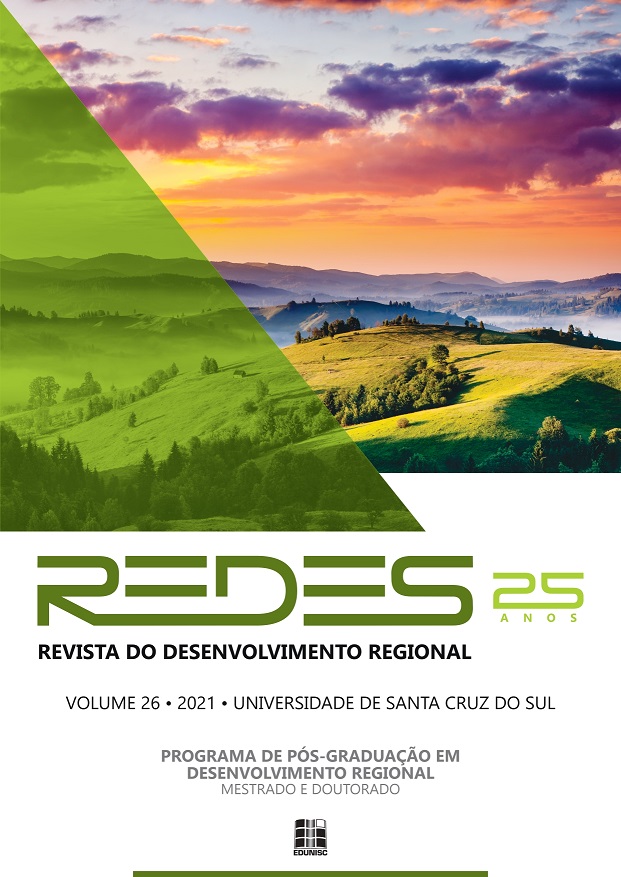Interaction between public policies and local dynamics of family farming in the Portal of the Amazon Territory - Mato Grosso
DOI:
https://doi.org/10.17058/redes.v26i0.17229Abstract
Family farming represents one of the main social and economic groups in northern Mato Grosso. Understanding the interaction between public policies and local and regional dynamics that affect this economic sector is of fundamental importance to identify the gaps and problems of political and operational order that hinder the development of the region. This study aims to analyze the local impact and appropriation of public policies related to rural development by family production and social actors in the territory called Portal da Amazônia, which covers 16 municipalities located in northern Mato Grosso. To this end, the classic instruments of public policy for family production (credit policies, technical assistance rural extension and support for marketing or product qualification) are compared with new participatory instruments of public policy (federal government programs that value environmental management and sustainable production). Mainly, their scale of action differentiates these two groups of public policies: the first has a more individual nature, associated with theowner of the plot, and the second has a territorial scope, applied to a group of municipalities. The results show a problematic and deficient application of the classic instruments, particularly credit and technical assistance, which hinders environmental management and encourages unsustainable production practices, although there is potential for diversification of technical assistance and rural extension (ATER). The new territory-based public policy instruments, such as Sustainable Rural Life, have provided important spaces for innovation and farmer organization, as well as greater interaction with local civil society. These new instruments have strengthened the recognition and importance of family production for the region's economy, encouraging it to seek to improve its production. A strengthened, organized and collectively operating family production is essential for the promotion of rural development based on sustainable production that respects the environment and provides a more equal distribution of income.



